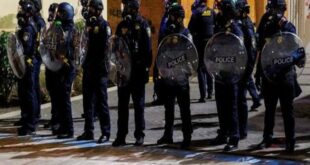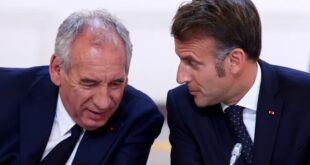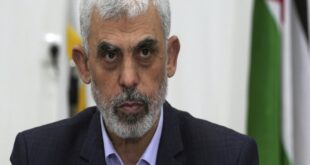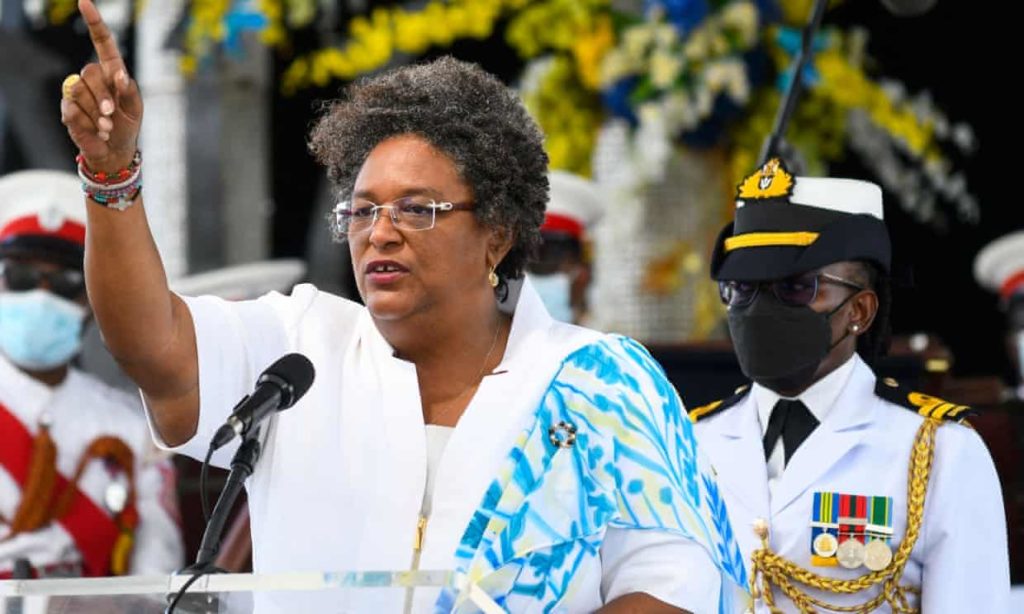
Arepublic has been proposed and postponed by Barbadian prime ministers for decades. Battling a pandemic that has devastated the country’s tourism economy, Mia Mottley, the country’s first female leader, had ample excuses to again kick the constitutional can down the road.
Instead, at the stroke of midnight on Monday, she oversaw the transition of the Caribbean island out of the realm of the British monarchy – the country’s first local head of state, also a woman, Sandra Mason – and in case that were not enough, bestowed the title of national hero on the Barbadian megastar Rihanna in one of the new republic’s first acts.
To close observers of Mottley, 56, little of what transpired this week was surprising.
“She is a person in a hurry,” says Cynthia Barrow-Giles, a professor of political science at the University of the West Indies, who has tracked Mottley’s political career since she entered parliament as a lawyer in her late 20s.
“Her hurry is to achieve what she thinks is in the realm of possibility in the Caribbean. She believes this region represents a civilisation that is still untapped, and she wants to untap it.”
Mottley hails from a wealthy family and a Barbadian political dynasty – her grandfather was a mayor of the capital, Bridgetown, and her father an MP – but in her own career has forged a populist profile, comfortable among the masses and close to working-class constituencies.
“She’s a very ‘rootsy’ person,” says Peter Wickham, a principal director at Caribbean Development Research Services, a political consultancy. “She’s forged an alliance with the pan-African movement and other progressives, the Rastafarians and other low socioeconomic organisations.”
Winning office in a landslide in 2018 – her Barbados Labour party (BLP) holds every position in the country’s 30-seat parliament, the first clean sweep in the country’s history – one of Mottley’s early acts was to reinstate free tertiary education at the country’s premier University of the West Indies campus.
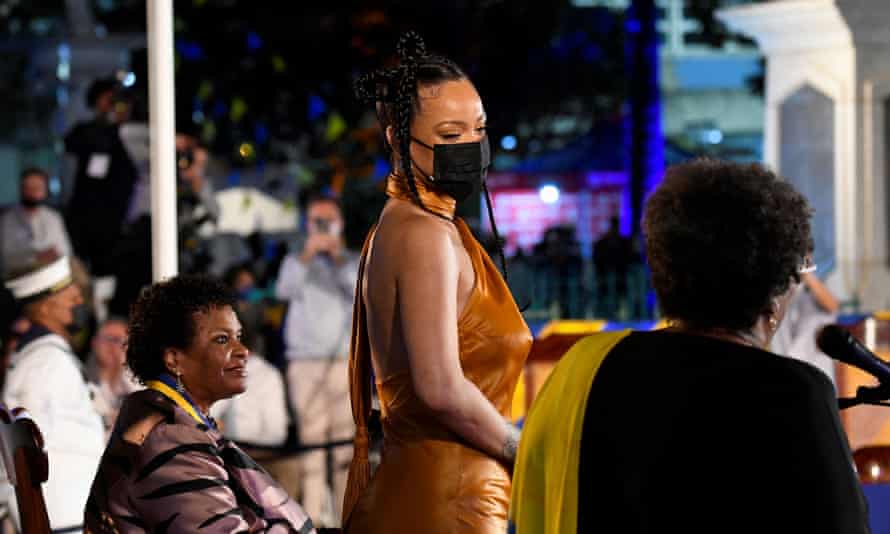
Barbados is a socially conservative, deeply religious society, making it especially difficult for a woman – especially one who is single – to climb to the top of its politics. “She’s taken a lot more abuse than any other politician I know, both within her political organisation and outside it,” Wickham says.
But Mottley, “a political creature from start to finish”, has made light of the challenges, he adds. Many of her former adversaries and rivals are now members of her cabinet. “She practises a politics of convenience,” he says.
What she wants to do with power, on the other hand, is less open to compromise. Removing financial barriers to university points to the kind of mental transformation Mottley is eager to accelerate across the Caribbean. Alongside cutting ties to the monarchy, she has strengthened them with the Gold Coast states from which Britain enslaved and transported an estimated 600,000 Africans to work on the island’s sugar plantations. (Just 83,000 were surviving at emancipation, according to Barbadian historian Sir Hilary Beckles).
On a visit to Ghana, Mottley took soil from Barbados’s Newton Slave Burial Ground, one of the largest such sites in the western hemisphere, and spoke to the country’s parliament in stark terms about their shared history and future. “Our people humanised the violent, inhumane slave plantation society that the British colonialists had established,” she said.
“[But] we are still faced with the insidious nature of a culture that is intended to dehumanise black people wherever black or blackness is found, and our parliaments therefore, while we shall be in the vanguard of removing all laws of discrimination, it is the mental emancipation that shall forever always matter.”
She has renewed calls for the UK and other European states to make reparations for the slave trade, a message she took into British homes last year, arguing the case on Good Morning Britain.
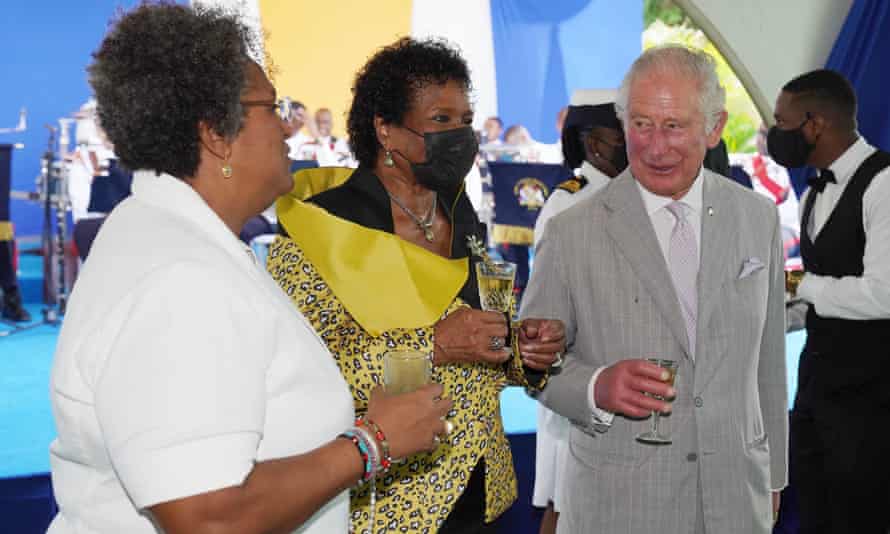
Boosting Monday night’s somewhat staid event of a formal constitutional transition (guest of honour, Prince Charles) with the star power of Rihanna ensured it became an international story that was shared widely on social media and reached younger audiences.
It showcased another emerging Mottley trademark: the ability to get noticed on the international stage. At last month’s Cop26 summit in Glasgow, Mottley surveyed a hall of many of the world’s most powerful people, delivering a withering warning in her contralto voice that captured the moment, and left some speculating about a possible future running a United Nations agency, if not one day becoming its first female and first Caribbean secretary general.
A month before, her remarks to the UN general assembly had gone viral for invoking Bob Marley. “Who will get up and stand up for the rights of our people?” she asked delegates.
Establishing a proud, independent Barbadian identity that is unflinching about the country’s bloody past and its implications for the future has been one of Mottley’s long-term goals, analysts say.
Last year, when the murder of George Floyd ignited Black Lives Matter activism around the world, including in Barbados, she seized the opening, agreeing to take down a statue of Admiral Horatio Nelson that had stood in the capital for more than 200 years. The same day it was removed, she announced Barbados was going to become a republic in a year’s time.
“She would not have forgiven herself if she hadn’t addressed [the republic], and she wanted to address it quickly,” says Barrow-Giles.
But she must walk a careful line. The pandemic dented tourist arrivals in Barbados by 86% last year and has left the economy reeling. Barrow-Giles is one of many to express doubts over whether Mottley has done enough to persuade Barbadians of why changes such as the republic, or an accompanying review of the constitution, matter to their lives.
“I’m not sure she has been able to reach the average person in relation to how those grand ideas are going to lead to a transformation of their socioeconomic conditions,” she says.
“When you speak to some people on the ground, there’s cynicism and disappointment that they have not been consulted [on the republic].”
Her political rivals accuse Mottley of squandering what could have been an opportunity to spend time engaging Barbadians in the transition – waiting until Covid-19 had ebbed, so that in-person town halls could be held, or putting the decision to a popular referendum – in order to make it a truly transformative event in the national psyche.
“Democratic republics are not merely formed upon the consent of the people, they are absolutely dependent on the active and informed involvement of the people for their continued good health,” said Guy Hewitt, a former diplomat and figure in the opposition Democratic Labour party, before this week’s handover. “I believe Barbados has gotten off on the wrong foot.”
Caribbean leaders often outlive their welcome with the public, Wickham says. Notably, Mottley has made clear that she supports term limits for Barbadian prime ministers, and that she will serve only two herself, meaning if she wins elections in two years’ time, she will be out of the job by 2028.
“Our previous prime ministers don’t have a good record of resignations … because nothing excites them like being a PM,” Wickham says. With a surging international profile, however, Mottley may find she does not encounter the same problem.

By Michael Safi in Bridgetown – theguardian.com




 World Opinions Débats De Société, Questions, Opinions et Tribunes.. La Voix Des Sans-Voix | Alternative Média
World Opinions Débats De Société, Questions, Opinions et Tribunes.. La Voix Des Sans-Voix | Alternative Média

